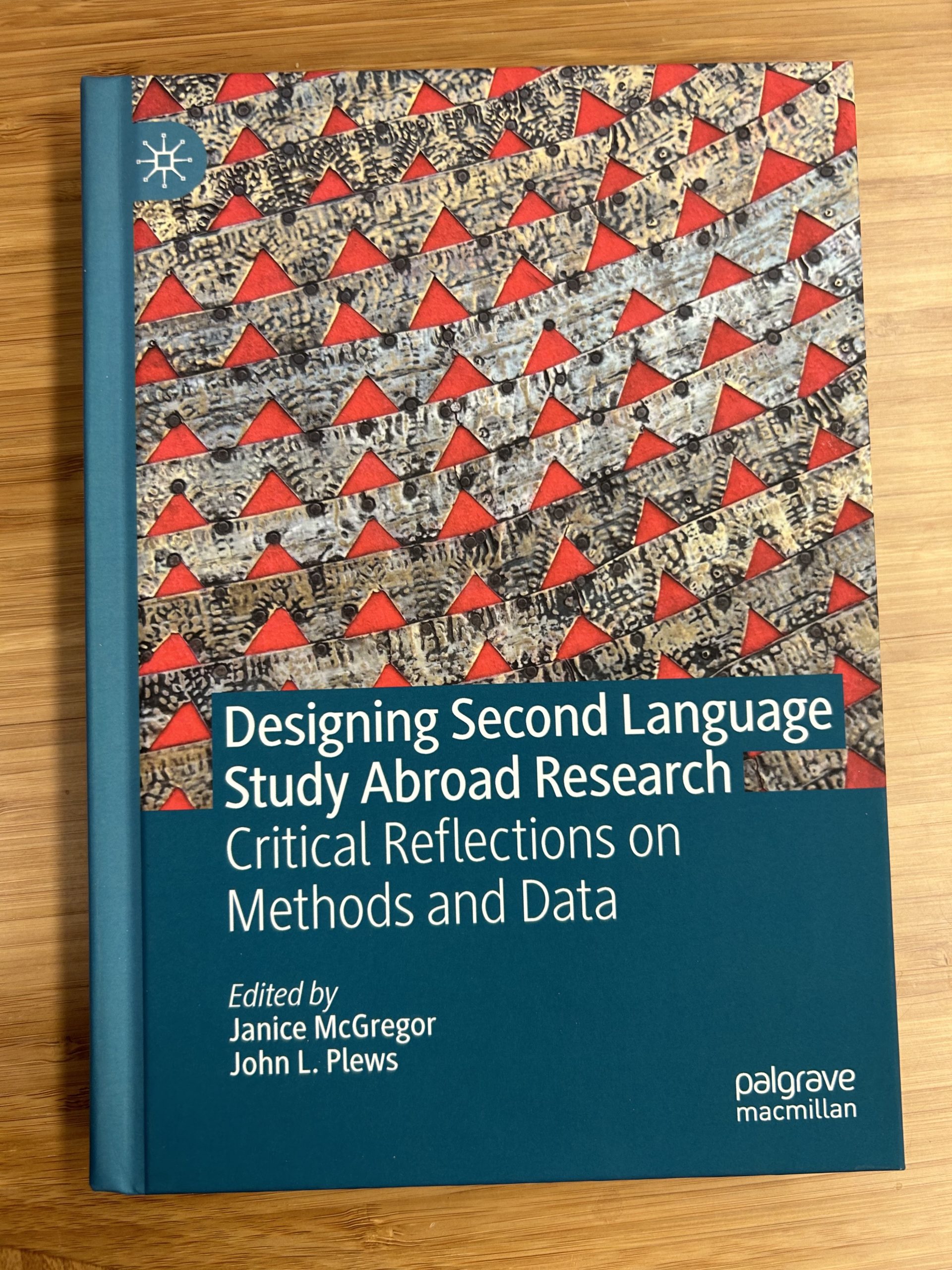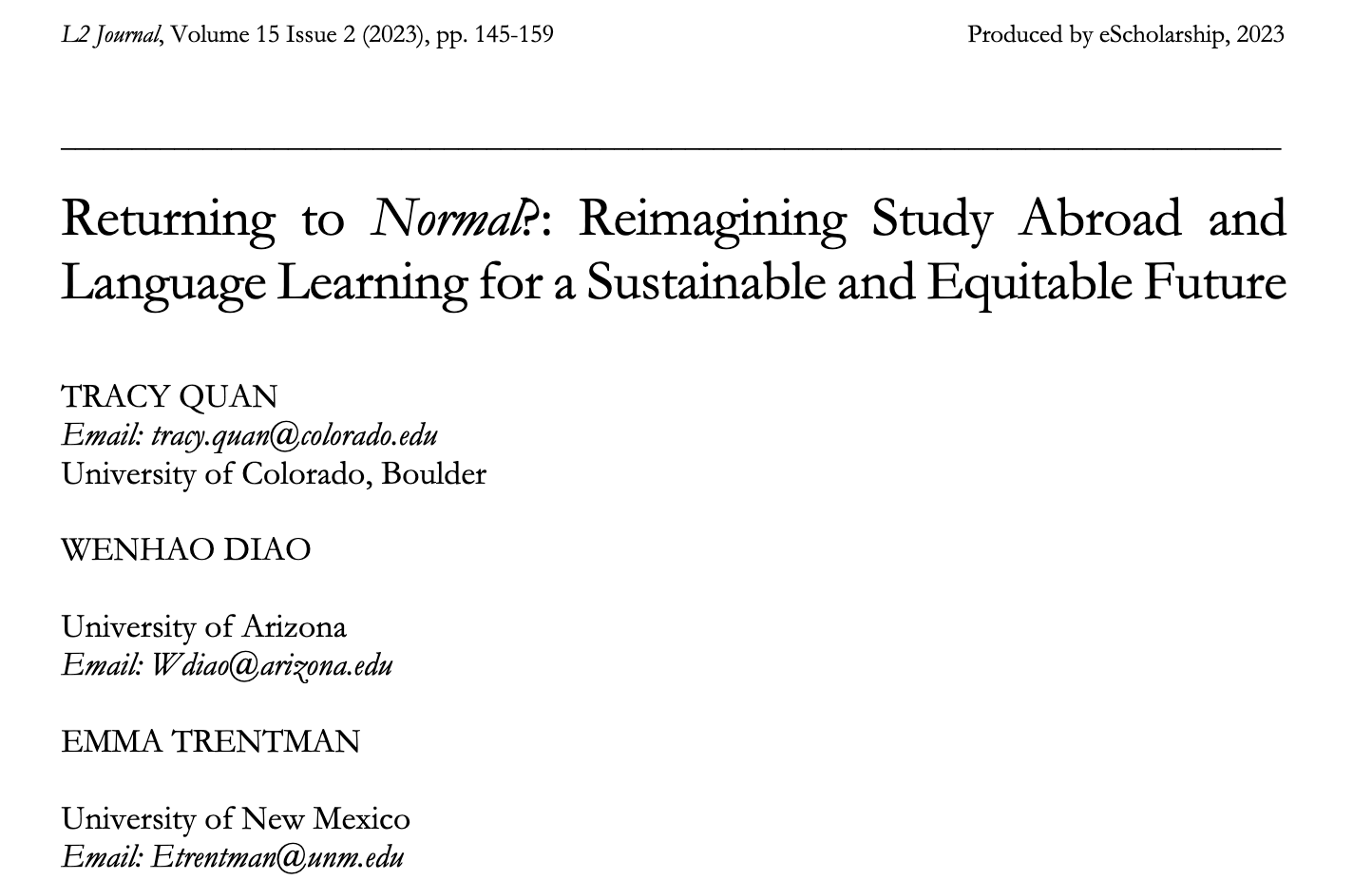Category: Study Abroad Ideologies
-

New Chapter: Addressing the Ideologies of Study Abroad
I’m excited to announce that I received a hard copy of Designing Study Abroad Research: Critical Reflections on Methods and Data, edited by Janice McGregor and John L. Plews. This book takes a critical approach to research and inquiry into study abroad, bringing together chapters by many of my favorite study abroad researchers! Research on…
-

New Article: Reimagining Study Abroad
I’m excited to announce that I have a new article out with Tracy Quan and Wenhao Diao, “Returning to Normal?: Reimagining Study Abroad and Langauae Learning for a Sustainable and Equitable Future”. It is in a special issue of the L2 Journal, “Study Abroad During COVID and Beyond”. The L2 Journal is open access, so…
-

Ideologies of Study Abroad: Professional Preparation
Last Spring, I started a series on ideologies of study abroad (my current research project!)and you can read previous posts on study abroad as tourism, language immersion, and personal transformation. In this post, I’ll be tackling another common ideology, that of study abroad as professional preparation. Under this ideology, study abroad results in specific skills…
-

Ideologies of Study Abroad: Personal Transformation
It’s time for a new post on ideologies of study abroad! This series started last Spring, with a post on study abroad as tourism, and continued in September with one on study abroad as language immersion. In this post, I’ll be taking on study abroad as personal transformation, another commonly perceived outcome of study abroad.
-

Ideologies of Study Abroad: Tourism
I’ve written a lot on this blog about language ideologies, including different types of language ideologies, and why I think they’re important for the classroom. However, I haven’t written much about study abroad ideologies, another set that I think all too often is unquestioned. If language ideologies are beliefs about language, study abroad ideologies are…
-

The Whiteness of U.S. Study Abroad
This post is a summary of part of my talk where I used photos on a program website to demonstrate how even when we take real steps (such as financial support) to promote and support including underrepresented groups in study abroad, we often still do it in a way that doesn’t really challenge what I…
-
Does study abroad lead to intercultural learning?
For U.S. students, study abroad has never been more popular—according to the Open Doors data from the U.S. State Department, the number of students studying abroad has more than doubled since the turn of the 21st century, and about 10% of U.S. students will study abroad during their undergraduate career. As a study abroad researcher,…